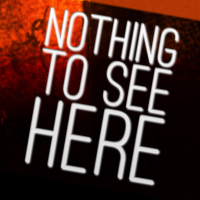Judge Lets LAPD Hide License Plate Reader Data from Public

The public does not have a right to see the information Los Angeles police have stored in computer databases from pictures of license plates the department continuously shoots across the city.
That’s the call from Los Angeles County Superior Court Judge James Chalfant, who rejected the request of advocacy groups to get a peek at one-week’s worth of data, saying it would jeopardize investigations and interfere with legitimate police work. It would reveal patrol patterns and hot-list comparisons to criminals, and also perhaps endanger third-parties.
Judge Chalfant said he weighed all that against the public’s right to privacy and its inability to assess what the LAPD is doing with the data without access, and decided “a balancing of public interests works in favor of non-disclosure.”
Automated license plate readers (ALPR or LPR) are deployed by police departments and state agencies in dozens of states. The LAPD has 242-car mounted cameras and 32 at fixed locations snapping away at up to 60 plates a second, according to Ars Technica. Around 28 jurisdictions in Los Angeles County use plate readers. The photographs are taken indiscriminately of law abiding citizens.
The judge acknowledged the “intrusive nature of ALPRs and the potential for abuse.” He also recognized that an analysis of the data would show if a few locations communities were being focused on by the police. “The data will reveal whether police are targeting political demonstrations to help identify protesters, or other locations such as mosques, doctors’ offices or gay bars that might yield highly personal information,” Chalfant wrote.
Doesn’t matter. The California Public Records Act under Section 6254(f) protects police investigatory files. Case closed.
The lawsuit was brought by the Electronic Frontier Foundation (EFF) and the American Civil Liberties Union of Southern California (ACLU). Peter Bibring, an ACLU attorney, told Ars Technica that the ruling had “broad implications for the surveillance state. It gives law enforcement agencies broad leeway to collect data about innocent, law-abiding citizens.”
Agencies vary in the way they utilize and share the data, and some hang on to the information for a long time. A database can hold license plate numbers, a photo and the time, date and GPS location of the vehicle and its occupants. It could potentially be cross-indexed with other public data and provide a fine source of income if sold to data brokers.
California Watch published a story in January 2012 about Livermore-based Vigilant Solutions and its National Vehicle Location Service that had more than half a billion license-plate records on file back then. Around 1,200 new law-enforcement users a month were signing up to access the system, which is offered free by Vigilant even to those agencies that neither buy their scanner nor contribute to the database.
–Ken Broder
To Learn More:
Secrecy Trumps Public Debate in New Ruling on LA's License Plate Readers (by Jennifer Lynch and Peter Bibring, Electronic Frontier Foundation)
Los Angeles Cops Do Not Need to Hand Over License Plate Reader Data, Judge Finds (by Cyrus Farivar, Ars Technica)
American Civil Liberties Union Foundation of Southern California et al v. County of Los Angeles et al (Los Angeles County Superior Court)
Homeland Security Cancels Plan to Track License Plates Nationwide (by Noel Brinkerhoff, AllGov)
L.A. Law Enforcement Sued over License Plate Scanners that Profile Drivers in a Database (by Ken Broder, AllGov California)
- Top Stories
- Controversies
- Where is the Money Going?
- California and the Nation
- Appointments and Resignations
- Unusual News
- Latest News
- California Forbids U.S. Immigration Agents from Pretending to be Police
- California Lawmakers Urged to Strip “Self-Dealing” Tax Board of Its Duties
- Big Oil’s Grip on California
- Santa Cruz Police See Homeland Security Betrayal in Use of Gang Roundup as Cover for Immigration Raid
- Oil Companies Face Deadline to Stop Polluting California Groundwater





